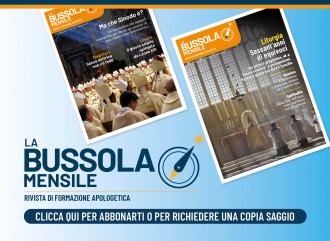Ecumenism for returning to the true Faith
He is not the God of the dead, but of the living. (Mark 12; 27)

Then the Sadducees, who say there is no resurrection, came to him with a question. “Teacher,” they said, “Moses wrote for us that if a man’s brother dies and leaves a wife but no children, the man must marry the widow and raise up offspring for his brother. Now there were seven brothers. The first one married and died without leaving any children. The second one married the widow, but he also died, leaving no child. It was the same with the third. In fact, none of the seven left any children. Last of all, the woman died too. At the resurrection whose wife will she be, since the seven were married to her?” Jesus replied, “Are you not in error because you do not know the Scriptures or the power of God? When the dead rise, they will neither marry nor be given in marriage; they will be like the angels in heaven. Now about the dead rising—have you not read in the Book of Moses, in the account of the burning bush, how God said to him, ‘I am the God of Abraham, the God of Isaac, and the God of Jacob’? He is not the God of the dead, but of the living. You are badly mistaken!” (Mark 12: 18-27)
It is inconsistent for the Sadducees to give an eternal value to marriage which, for almost all of Jesus' contemporaries, can be dissolved by spousal abandonment. However, Jesus responds to them by quoting a passage from the Pentateuch because the Sadducees only recognised the first five books of the Bible as inspired. In this quotation the Lord demonstrates the reality of our resurrection after death: since the God of Abraham is the God of life, Abraham must obviously still be alive, even though he had been dead for some time. This answer should teach us how to approach ecumenical dialogue between Christians and persons of other religions so as not to hide what divides us. By apologetically defending the reasons for our faith, we can try to demonstrate the coherence of the Church's teaching so as to stimulate a return to the true Faith. After all, Jesus sent us to proclaim the Gospel to all peoples so as to enable them to be open to seek salvation through Him.


